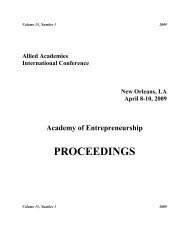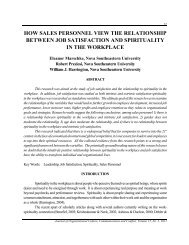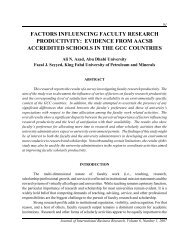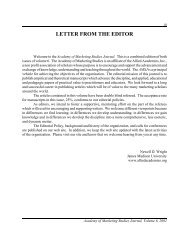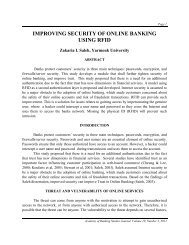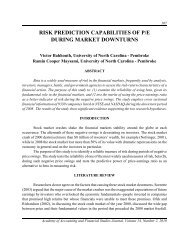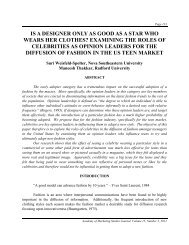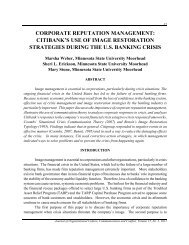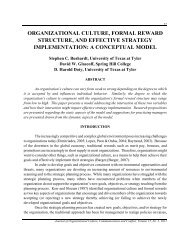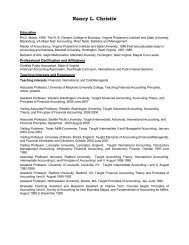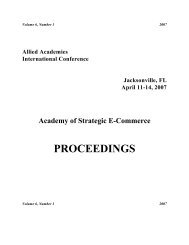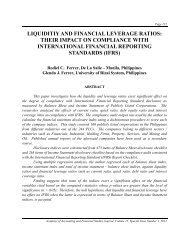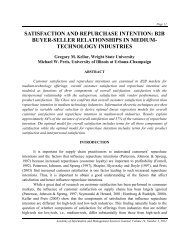AOCCC - Allied Academies
AOCCC - Allied Academies
AOCCC - Allied Academies
Create successful ePaper yourself
Turn your PDF publications into a flip-book with our unique Google optimized e-Paper software.
page 18<br />
<strong>Allied</strong> <strong>Academies</strong> International Conference<br />
DISCUSSION<br />
While past studies have peripherally included attributions in their examination of the<br />
phenomenon of escalation of commitment (Staw 1981, Bateman, 1981 Bettman and Weitz,<br />
1983), few have explicitly questioned the relationship between attributions and escalation of<br />
commitment as a primary focus. We explicitly ask: “Do attributions impact escalation of<br />
commitment?” through the use of four hypotheses. Our results explicitly support one of these<br />
hypotheses and find a significant, yet in the opposite direction, relationship for two others. The<br />
traditional locus of causality dimension was negatively related to escalation of commitment, as<br />
we hypothesized. Those who placed the responsibility for a performance related failure on<br />
environmental rather than internal causes were more likely to exhibit escalation of commitment.<br />
However, these specific findings highlight the contrast between locus of causality and the<br />
construct of internal or external controllability. External locus of causality relates to higher<br />
escalation, however, external control (someone else controls your failures and successes) is not<br />
statistically related to escalation. In contrast, internal control (you have control over success and<br />
failure) is statistically related to escalation. What this suggests is that individuals will be most<br />
likely to engage in escalation of commitment if they feel that they generally control their success<br />
or failure, but that this particular event is failing due to external causes. Essentially, the high<br />
internal controllability leads the individual to believe that they can personally force a positive<br />
outcome, in spite of the fact that environmental forces are stacked against them. Related to this,<br />
we also found that attributions to stable causes increased escalation of commitment. While this<br />
differed from Staw’s (1981) findings, it is not inconsistent with the original conception of<br />
escalation of commitment. Since escalation of commitment involves making decisions to achieve<br />
consistency with past behaviors, there would be more need psychologically to do this when<br />
confronted with a stable cause for failure. The cause would have been present in the same form<br />
and therefore factored into the original decision, while in the case of an unstable cause, it would<br />
give the decision maker an way to psychologically let themselves “off the hook” in terms of<br />
responsibility, as the cause was not already present when the original decision was made.<br />
References available upon request<br />
BIBLIOGRAPHY<br />
Orlando, 2011<br />
Proceedings of the Academy of Organizational Culture, Communications and Conflict, V.16(1)



